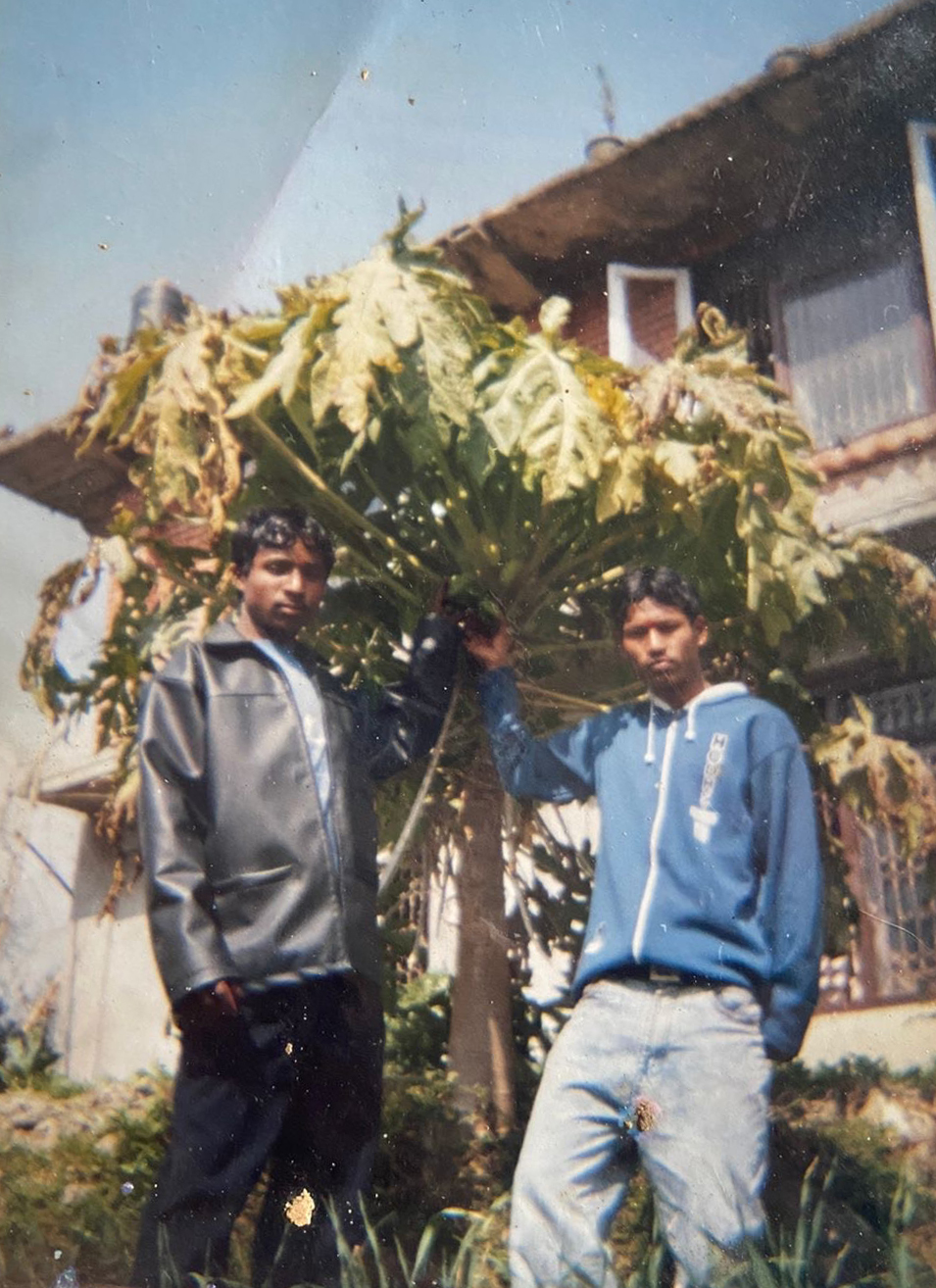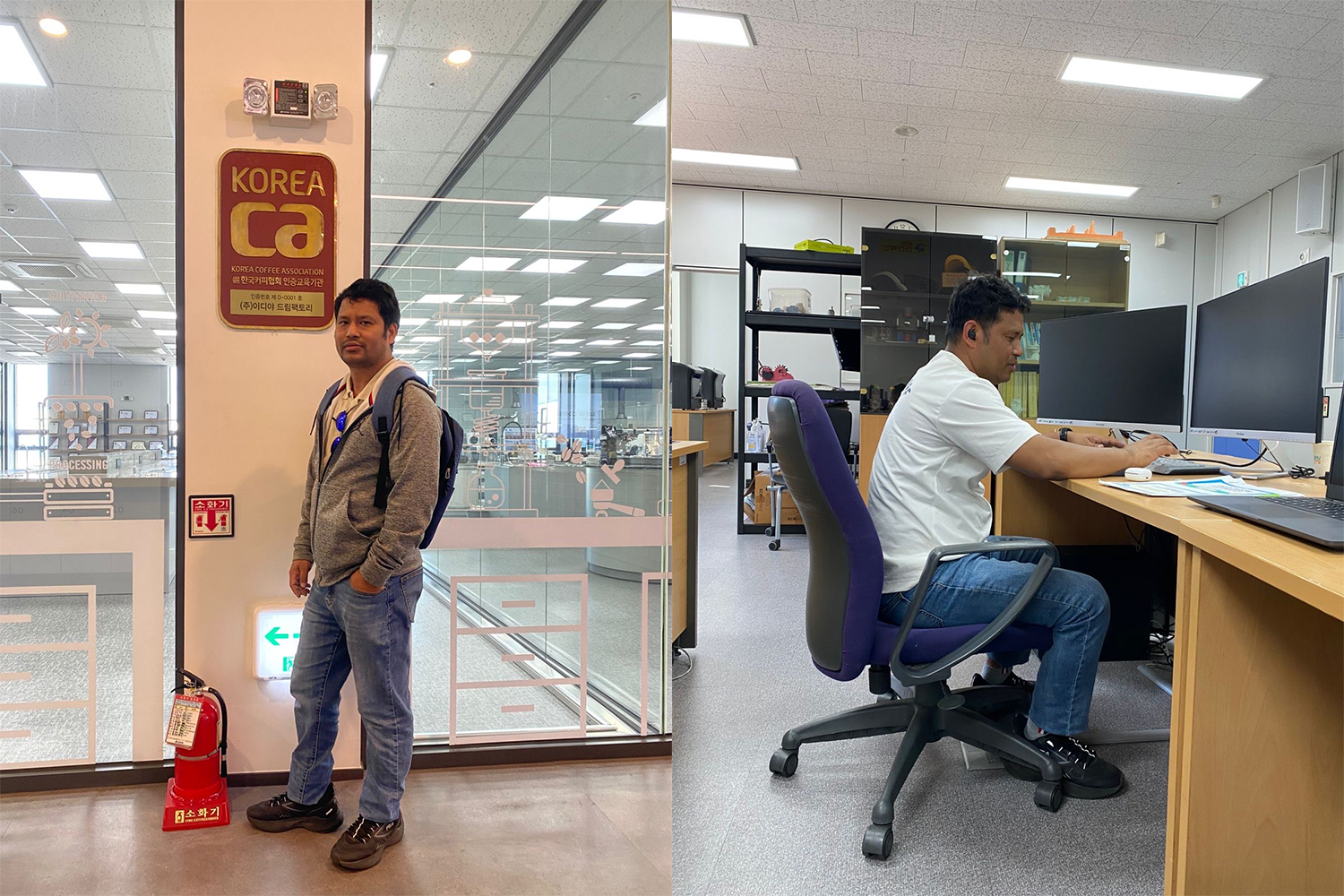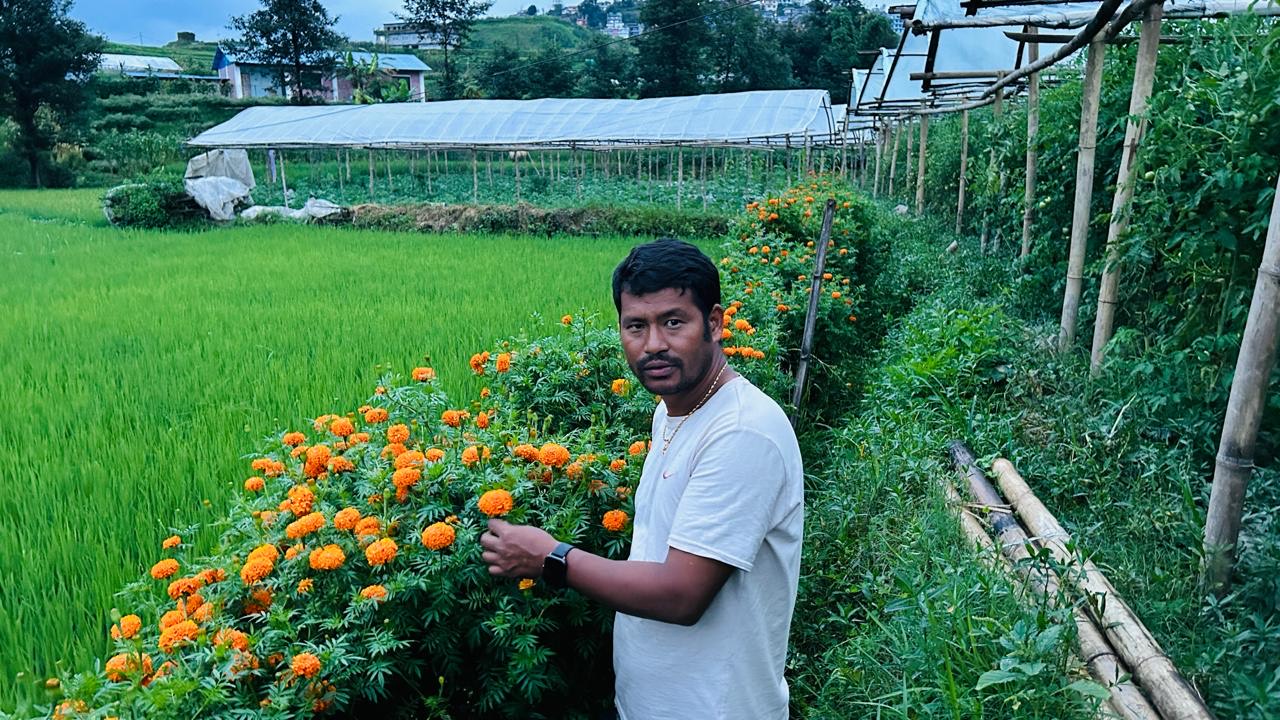The flower guy
A Nepali returns from Korea to expand family’s horticulture businessThis is the 72nd episode of Diaspora Diaries, a Nepali Times series in collaboration with Migration Lab providing a platform to share experiences of living, working and studying abroad.
My father ran a store and that is where I spent all my time till Grade 6. Doing my homework. Serving customers. I then moved to my maternal grandparents’ house because I used to get along with my cousin who was a year older than me. We did everything together, and were best friends. We took turns studying: I was a night owl, and he was an early riser. Before I went to bed after studying all night, I woke him up.
My mother was 44 when I was born, the same year my eldest brother got married. My sister-in-law becoming a part of our family was how my mother referenced my age.
I liked making money, and was always a hustler. In Grade 7, I learnt to handle a tractor and helped my brother-in-law to plough, earning Rs10 a day. As I got better, he paid me more. By Grade 9, I was already making Rs500 per day, but had to slow down to prepare for my exams.
From an early age I knew I did not want a 9-5 job. There just wasn’t enough money in it. I wanted to get into business, and compared my brother who worked in the post office and what businessmen made. It did not help that my brother was honest, and never took bribes.
A friend and I made money selling cheap Chinese phones at a premium to our friends. We blasted music on the phones and pretended that we were giving them a discount.
After SLC, I started teaching math and other subjects. I was soon a shareholder in the same school and in the evening I was involved in our family’s floriculture business, growing amaranth and marigold for garlands.

It was then that a friend suggested we learn the Korean language. We could be earning significantly higher in Korea for similar efforts. I had no plans to go abroad but he convinced me. I did not know anything about Korea, and was scolded at the language institute when I asked someone to point Korea on the map.
It was only there that I learnt you had to pass an exam for the Korean Employment Permit System (EPS), and pay for language classes. After a week, I decided it was not for me and dropped out. But my friend convinced me to give it one more try. I did not prepare much for the exam, and it was no surprise that I failed.
But it was just by one mark, and people would pity me for failing “just by one mark”. It was a brand of failure. It hurt my ego. I had to turn things around by taking the exams seriously, and locked myself up to study hard.
Even when we had visitors, my wife told them I was not home. If I was not in my room learning Korean, I would be with a group of ten of us test-takers comparing notes and practicing late into the night. The exam was difficult, but this time I passed, the only one in my group who did.
As someone who never liked the idea of doing a job, I still had my doubts about going to Korea. It did not help that one of my acquaintances had returned a month after he had left, and he discouraged me from migrating given that I was already making good money in Nepal.
But my wife suggested that I give it a shot since I had worked so hard for it. And if it really turned out not to be my cup of tea, I could always return. What did I have to lose, I thought, at least I would get to visit Korea.
My job there was in an electrical company that made circuit boards. I worked all day, earned good money. In the evenings, I kept myself busy with my real estate business back in Nepal. I had learnt the tricks of the trade from fellow real estate agents back home, but at the time did not have the capital to invest.

In Korea, it helped that I had salary records that allowed me to get loans from financial institutions both in Korea and in Nepal. Ultimately, I started earning more from my real estate deals in Nepal than from my job in Korea. This was all thanks to my ability to take loans because of the EPS scheme. My wife has been managing the flower business while I was away.
My finances grew stronger over the eight years I was in Korea. I paid off the loans that I had borrowed to buy land. But real estate did not satisfy me entirely. I wondered: what is my brand? What will I be known for? What is my contribution to society?
Real estate is for wealth, but that is about it. I needed to sell one piece of land and use the revenue to start a venture. I took classes in business, and returned to Nepal six months ago and got back to my family’s ancestral roots in floriculture.
In Nepal too, I am continuing the entrepreneurship training I had started in Korea with the Bridge International. Such exposure helps us reflect on our business such as our branding, vision, and proactive aspects like the importance of strong recordkeeping.
I am now working to upgrade and expand my floriculture business. With a friend who is still in Korea I am building a cooling room to increase the shelf-life of flowers and other produce and set up a market in my village where others can sell their produce. Floriculture is our primary business, but it is seasonal and earns good money only during festivals like Tihar.

So, I grow tomatoes to ensure year-round earnings. I also am engaged in other businesses like real estate and online shopping. I work round the clock in Nepal — a strong work ethic is something I picked up in Korea.
My Korean bosses would work alongside us, that motivated us. I work just as hard in Nepal as I did in Korea. People here often ask me why I am pushing myself so hard.
But making garlands comes easy to me, it is work my forebears were involved in. My childhood memories are about plucking flowers with my sister.
I have a comparative advantage in this work. It comes naturally to me, it is easy and I enjoy it. And sometimes, if there are too many garlands to make, I can multitask while holding meetings. My fingers just fly. I am good at this job, but my wife is even better and faster.
When there is too much load, we can also outsource the work. To be known as the flower guy would be great personal branding. The मखमली guy. Or the सयपत्री guy. I decided to come home for just this with a one-way ticket. “अब पासा: जाँदैन ल्हासा!”




